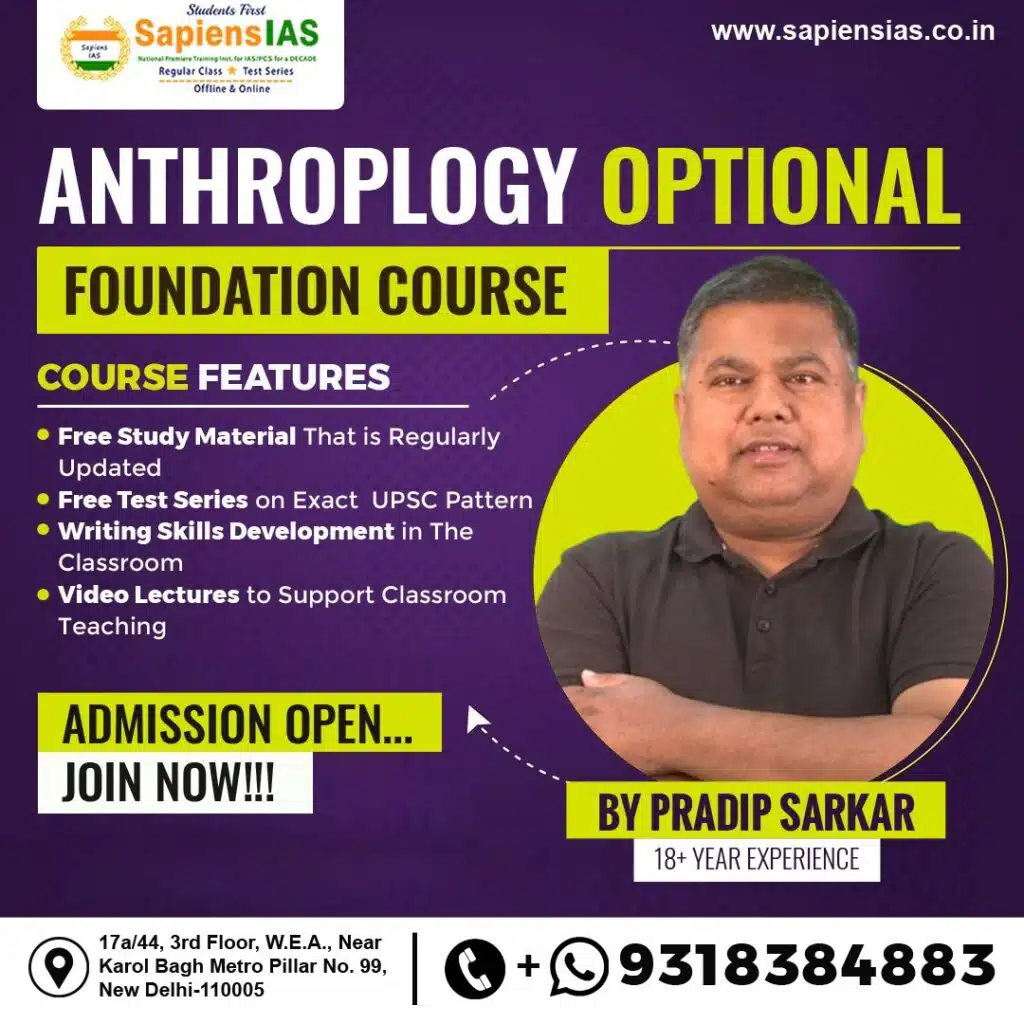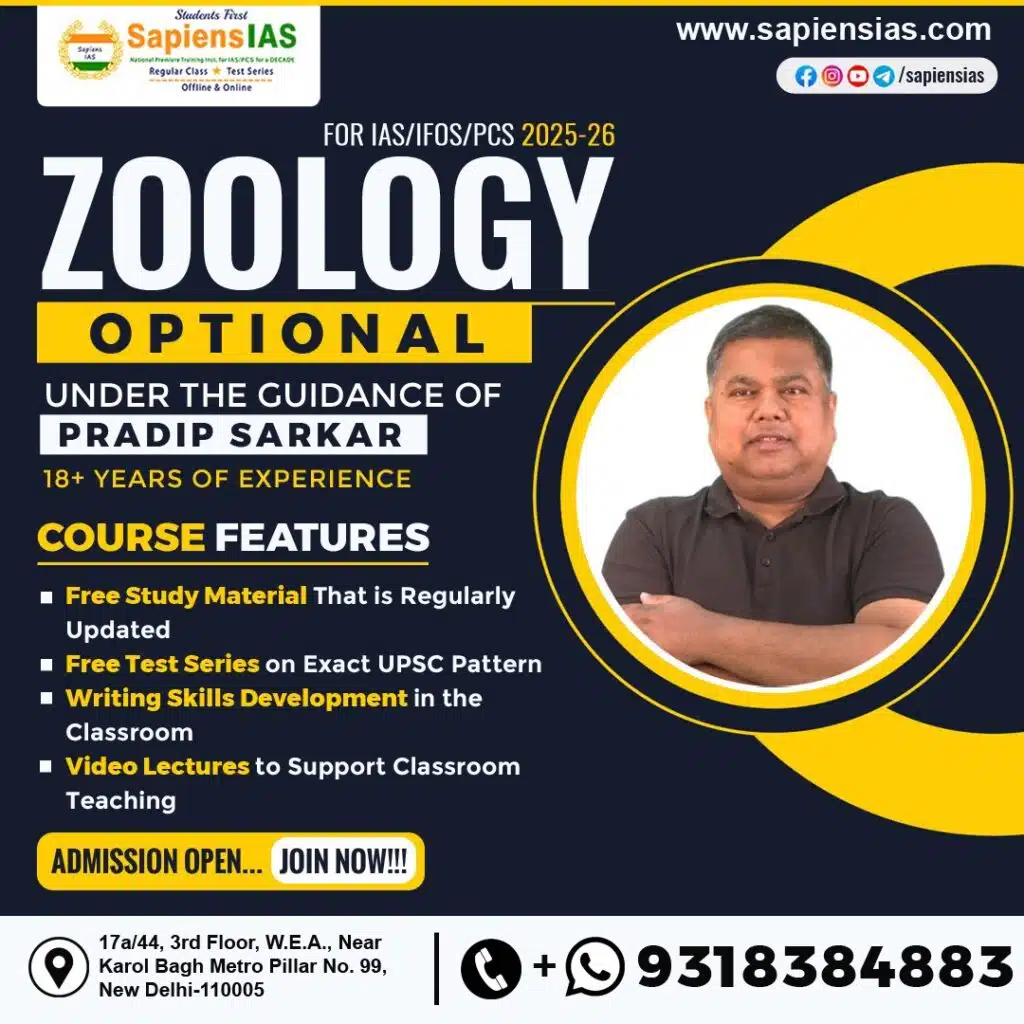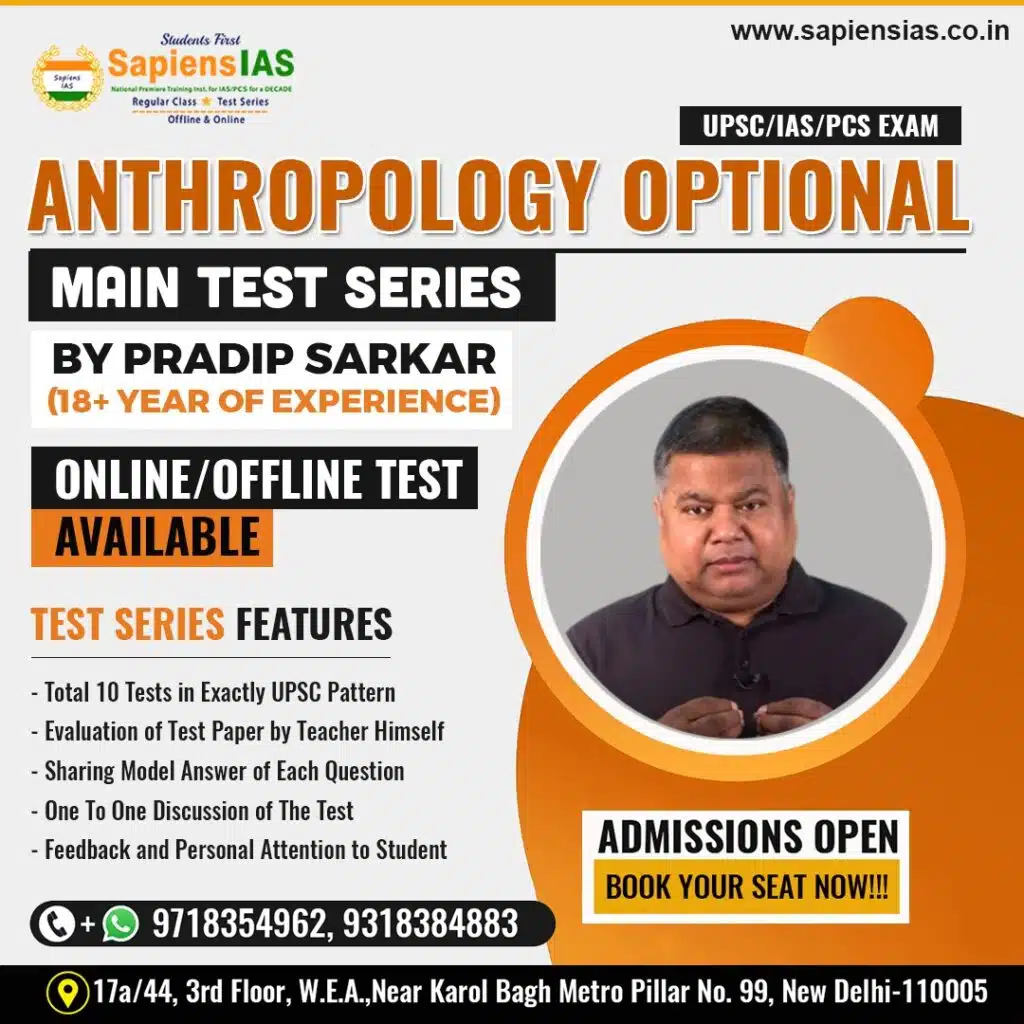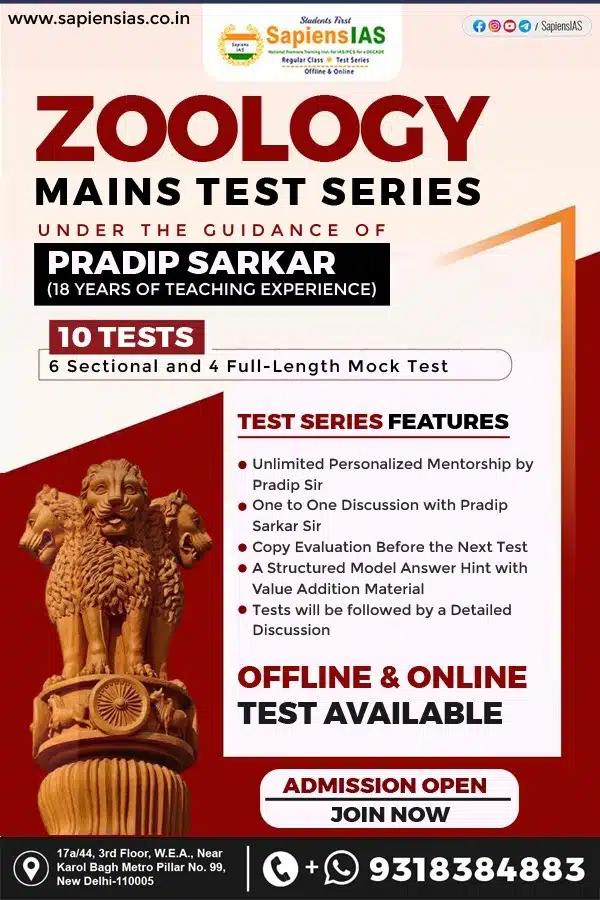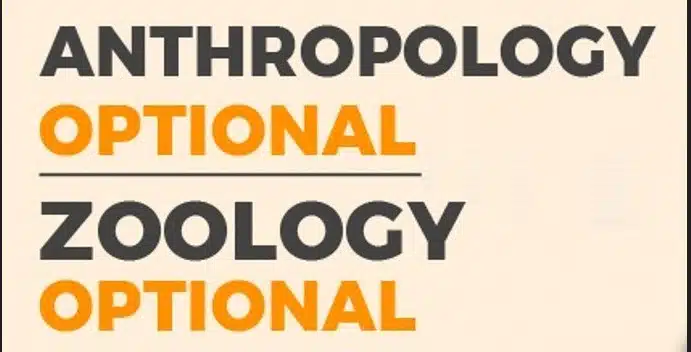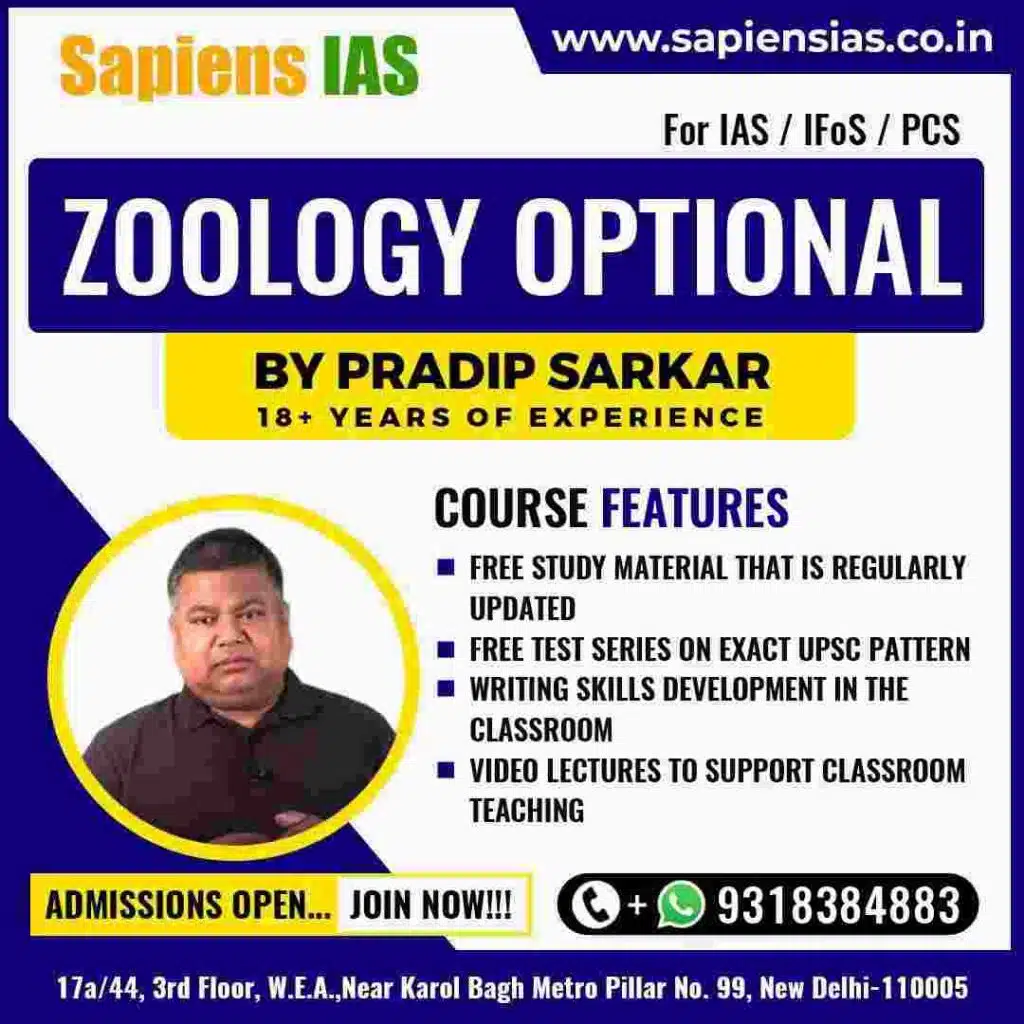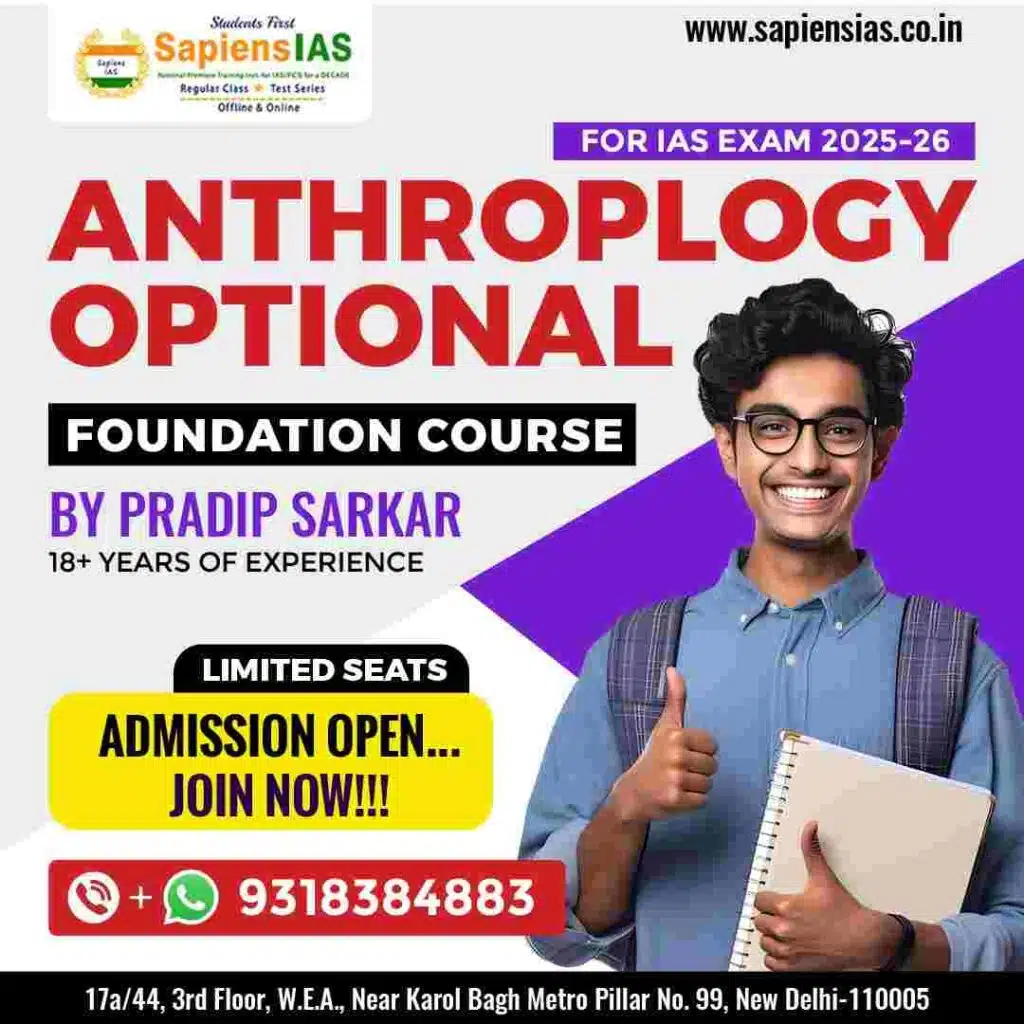Zoology requires a huge amount of hard work. This optional paper is also quite lengthy. Aspirants should be thorough with the syllabus. Knowing the syllabus will help you to understand what to study what not to study. Click here to find the Syllabus for Zoology in UPSC civil service exam.
Table of Contents
ToggleWhat makes Zoology a scoring subject?
Zoology is purely a science subject, emerged as a scoring optional in UPSC IAS Mains and Indian Forest Service Exam as well. Ideally, this subject cannot be taken by the students from any background. Aspirants must be a graduate in Zoology, Medicine, Botany, Life Science, Agriculture, Forestry, etc. The students from non- zoology/ science may find this optional as a difficult one. For scoring well, you need not choose an easy subject, but shed your sweat and blood on that subject you have chosen. One must be thorough with the basic fact and concepts. The conceptual clarity, it will help you to answer an indirect and twisted question as well.
Intense reading
The Zoology optional syllabus includes diverse elements. After analyzing, the various components in the syllabus one must pick out the right books. This optional paper demands intense reading.
Importance of short notes
Note making is considered an essential part of UPSC preparation. The zoology optional subject is loaded with abundant information and figure. To retain this one has made short and crispy notes during the preparation. Such short notes will ensure that your answers in the UPSC Main exam are covered all the points in a balanced manner and absolute.
If you are preparing for the IAS IFoS exam and looking for the best Zoology optional study materials then check out Sapiens IAS Zoology optional study materials for IAS aspirants.

Answer Writing
Zoology is related to the animal kingdom and this paper gives us a wide opportunity to express our ideas. The aspirant should frame answers with necessary diagrammatic and keep your answers less verbose. Citing a brief and brilliant introduction will capture the attention of the evaluator. Aspirants should give proper, diagrams, in-depth and rigorous information to show your confidence and knowledge in the subject. While choosing the terminologies also, cite proper words and terms as it contains many scientific terms. Try to establish relationships by using diagrams and flowcharts. Zoology optional answer writing plays an important role in scoring the maximum numbers in the IAS IFoS mains exam.
Find the important topics in Paper I and Paper II
Identifying the most important and fruitful topic in Zoology Paper I and Paper II will enhance your preparation. Here we are citing some important topics according to the previous year’s UPSC trend. Aspirants must cover these areas thoroughly.
- Economic Zoology
- Invertebrates
- Ecology
- Biostatistics and Bio-instrumentation
- Vertebrate Zoology with comparative anatomy
- Evolution
- Physiology and Biochemistry
- Genetics
- Developmental Biology
Tips for zoology optional Paper 1
Aspirants should pay attention to general essays. They must cover all the theories and must correlate things from the evolutionary viewpoint. While studying Economic Zoology, the candidate must focus on topics related to recent developments in India.
Tips for zoology optional Paper II
In some areas of zoology Paper II, it is significant to express what we know and how we know. While answering the zoology optional Paper-II, one should not forget to highlight the human aspects.
Essential books
Aspirants should pick out easy and basic books to build a foundation. This will help you to conceptual clarity. After that, one can pick out detailed references books to read. Aspirants should cover the entire syllabus with the list of books recommended below.
Important Books for Zoology Optional
-
- A Dictionary of Entomology by Leftwich: Click here
- Biochemistry – Harper, Lehninger, Stryer, Rao: Click here
- Genetics – P.K. Gupta, Gardner, Ahluwalia, Vir Bala Rastogi: Click here
- Physiology – H.R. Singh: Click here
- Animal physiology – H.R. Singh, Vander: Click here
- Embryology – Balinsky, A.K. Berry, Vir Bala Rastogi: Click here
- Ethology – Reena Mathur, Magazines like Science Reporter, Nature etc.
- Ecology – P.D. Sharma, Odum, Vir Bala Rastogi and M.S. Jayaraj, Kotpal and Bali: Click here
- Organic evolution by Veer Bala Rastogi: Click here
- Cell and Molecular Biology – De Robertis, C.B. Powar: Click here
- Invertebrates – R.L. Kotpal, Nigam, Jordan: Click here
- Modern Textbook Of Vertebrates Zoology by R.L. Kotpal: Click here
- Comparative anatomy of vertebrate zoology by Kent: Click here
- General zoology: Tracy Irwin Storer, Robert L. Usinger: Click here
- Economic Zoology – Shukla and Upadhaya, Kotpal Series, Kotpal- Khetrapal – Agarwal: Click here

